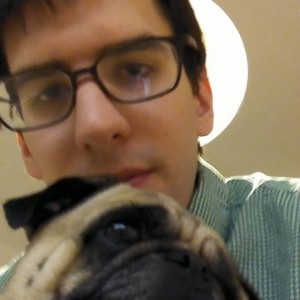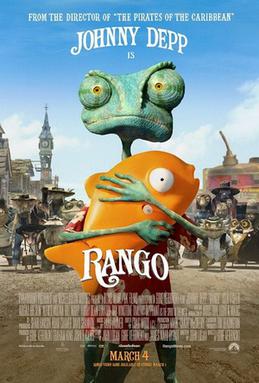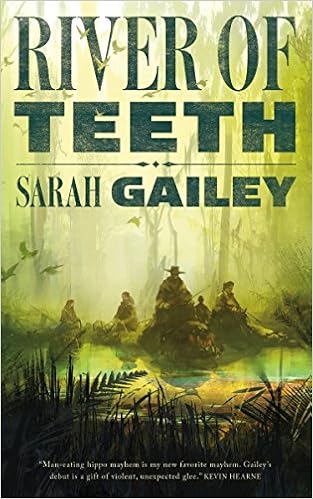Old James McGrath was widely held to be the orneriest man on the frontier. They say he glared down a rattler so bad the critter’s great-great grandkids were afeared of venturing onto his land. They say that, once, a real big twister, one of them mean old suckers only found in the frontier lands, was sent packing straight back into its girlfriend’s arms by his bilious vitriol. They even say that tricky Coyote tried to swindle him out of his ranch, but ended up walking away missing thirty acres of prime real estate. It came as no surprise, then, that when Death came for McGrath in the shape of a late spring cold, he sent Old Boney packing with pant bottoms full of lead.
For a time, McGrath kept on with his ranching and riding and drinking and shooting and thought little of his close call. “Goddamned solicitors,” was the only thing he said about the incident, muttered between two slugs of whiskey and a cigarette.
Death was kept occupied by the rigors of the frontier. It was a busy time for the man, and he put old James McGrath out of his skull. Truth be told, no cowboy old or young came willingly, and Death had gotten used to dodging bullets and Indian curses. But they all came eventually, and so would McGrath.
A week passed in a hurry, and then another, and Death heard nothing. Surprised and not a little confused, Death went back to Tombstone, Arizona, where he kept his office. He usually tried to avoid it, if he could, preferring the open range and the starry sky, but these were peculiar circumstances.
Both Old Smokey and the Holy Gatekeeper kept regional offices nearby. Death checked in with them, just to make sure the old man hadn’t snuck through unnoticed. Peter, a mousy, bookish man, hemmed and hawed and checked a bunch of dusty ledgers and kept Death waiting, which is the main job of government men everywhere, but eventually admitted that, no, James McGrath hadn’t snuck in through the Pearlies. The offices of Mammon, Lucifer & Asmodeus, Attorneys at Law, were not really any better in Death’s opinion. He never left the place without the vague feeling of having been swindled.
Meanwhile, James McGrath had taken to being dead like a fish takes to water or fire to the scrublands of California. Even before his death he could drink anyone under the table, but now he could do that without breaking a sweat, and any young buck who challenged him to a gunfight had best have already sent his Ma some flowers and bought a plot at the church. In the two weeks after his death, Old James sent more people packing than the Union Pacific. Everyone but young McCauley, one of the old man’s drinking partners, had taken to avoiding him. While that suited McGrath just fine, even McCauley had been rather scarce in recent days.
And so he was surprised when one Sunday morning there came a knock at his door. Old James put down the bottle of watery and weak whiskey he had had the misfortune to have been cheated into buying, and cracked the door open, peaking out with gummy, unfocused eyes. There stood the Reaper himself, black robes draped over his skeletal frame, silver six shooter at his hip (Nobody on the frontier took you seriously unless you had a big old hand cannon strapped to your side, and Death thought the scythe was old fashioned anyhow: a symbol of the Old World he’d shed when he followed the masses seeking fortune in the New.)
“Now,” Old James said. “I know I sent you scurrying away not two weeks ago. What’re you doing here?”
“Well, Mr. McGrath, I’m afraid there must’ve been a mistake. See, you’re supposed to be dead. And, hmmm, while you are starting to look… smell… quite dead, I can see your body up and about and kicking. That leaves me with a bit of a problem.”
“Yeah? What d’you think you’re gonna do about it?”
“I was hoping to appeal to your better nature…” Death started.
The old man interrupted with a bark of laughter. “Haw, I ain’t got one of those.”
“I see that,” Death said pensively, riffling through the ream of papers shoved under one boney elbow. “How about a game? I see here you’re a deft hand at cards.”
A greedy gleam lit up the old man’s eyes. “Aww, hell. I ain’t that good, but I’ll play. What’re the stakes?”
“If I win, you come with me. If you win, I’ll make sure no one bothers you about this ever again.”
“Deal,” said McGrath.
Now you see, when Death’s papers said that the Old Man was a deft hand at cards, they weren’t lying. McGrath’s gimlet stare was known from Yukon to El Dorado, and in his youth he had left a trail of broken men, women, and ghosts in the saloons of the West. In fact, his ranch was financed by the honest winnings of half the frontier.
Not to say that the Great Equalizer was out of his depth: any game was old hat to Death. This method of dealing with the recalcitrant and the reticent was tried and true, and Death rarely, if ever, had to work hard to win. This, of course, led to a degree of indifference towards the game. Now, though, sitting across from Old Man McGrath, Death felt the same shiver as when he had sat across from old Methuselah, who had been adept at Sumerian dice back in his day.
What I mean to say is that Old McGrath and The Reaper himself were not unevenly matched. Billy McCauley, they agreed, would deal. They spit in their hands and shook on the terms. The sound of McGrath’s great phlegmy hock echoed off the mesas and started stampedes seven states over. When Death spit, fourteen stars and the spirits of the ghost riders in the sky blinked out of existence.
They sat at the table, pistols just out of arm’s reach. A solitary beam of sunlight bounced off the polished bone handle of Death’s pistol, then flicked the tip of McGrath’s greased up plugger, before stopping short and realizing exactly who it was in the room with. It respectfully tipped its cap and skedaddled outta there as quickly as it darn well could.
Death waved a skeletal hand, and a small heap of silver dollars, leering skulls embossed into both sides, rained into existence with a light jangle in front of Mcgrath. “These are the hours of your life, McGrath, and we’ll be playing for them.” With a second wave, a much smaller pile of coins appeared in front of Death. “These are the hours you owe me.”
“Bullshit. I don’t owe you nothing.” McGrath spit out. The Great Equalizer merely tilted his head to the side, looking at the decrepit old man curiously. McGrath glared stubbornly, but death remained impassive. Finally, he grumbled “Fine, if it’ll get you outta my house faster.”
The cards were dealt: five each, and the game was on. The cards did not favor McGrath on this day. Slowly, steadily, the pile of coins shifted towards Death, and soon both were equal. Barely suppressed rage glinted in McGrath’s eyes. He had never lost before, and he wasn’t about to start.
“All in.” He pushed his pile of coins to the middle of the table. Death responded in kind.
In McGrath’s hands were three aces and a queen, but Death was shooting for a straight flush. He had the queen and the jack and the nine and the ten of spades,but he needed the king or the eight to take the prize. He called for another card, and McCauley passed him an eight of clubs. McGrath grinned, and as McCauley queasily passed him another card, he slipped another ace from under his sleeve . He locked eyes with the shadowy chasms of his opponent, and nodded, once.
“It is time,” Death boomed, and one of the flies that had been buzzing around McGrath’s face shriveled up in a puff of smoke.
The cards were flipped.
“I win.” Old Man McGrath grinned. “Now get your sorry ass out of here, I never want to see you again. And take your damned chill, too.”
“That’s your prize and your right, but one day you’ll call to me and you will be mine,” a mighty peeved Death promised as he backed out of the shack. McGrath slammed the door in his face.
McGrath cracked open his best bottle of whiskey in celebration. “Come on, Billy, it’s not every day you pull a fast one over one of the manifested forces of nature. We’re gonna drink this ‘till there’s none left, and then we’re gonna drink some more.”
“I’d… uh, love to, boss, but I’ve got somewhere to be.” McCauley answered, a bit too quickly. He looked a bit green around the gills.
“When’s that ever stopped you?” McGrath asked.
McCauley looked anywhere but at McGrath. “I’ve just gotta be somewhere. Church.” He added, lying through his teeth.
“Suit yourself then, this here whiskey’s gonna be all mine then.” McCauley scurried out, and McGrath sat back down in his rocking chair by the fireplace. The cold held him tenderly in its embrace, like some soiled dove he had tipped handsomely.
He yanked the cork out between his teeth and spat it across the room. As he brought the bottle to his mouth, though, he saw the glint of something white lodged in the cork.
A tooth. His tooth. McGrath was no stranger to losing teeth, but this was the first time that it had happened without the taste of blood in his mouth, or the sharp pain of a knuckle to his face.
Not easily fazed, McGrath shrugged and brought the bottle to his mouth, taking a deep swig. In shock, he realized that there was nothing. He could feel the liquid pour down his throat, settle in a seething pool in his stomach, but there was no taste, no burn in his throat. “What the hell is this? Water?”
He opened a second bottle of whiskey and took a swig. Again, nothing.
Let it never be said that Old James McGrath was a coward, but, panicked, he ran from bottle to bottle, each time getting nothing. Finally, he skidded to a stop in front of the tarnished silver mirror hanging above his washbasin for the occasional shave.
The face looking back at him was not his own, of that he was sure. His own face was old, wrinkled, thin, and had hairs sprouting from where there shouldn’t have been hair. The face staring at him out from the mirror was bloated, green, and was peeling skin where skin shouldn’t have been peeling.
For the first time in a week, McGrath decided to make his way to town. He walked, ‘cause his horse was too scared to let him near. When he got to the village a little after noon on Sunday, as all kinds of respectable people were leaving church, the sight of him caused fourteen little old ladies to pass out, seven feared outlaws to turn themselves in to the sheriff, and one mortician to die of glee.
The real clincher, though, was that none of his friends wanted to sit with him in the saloon, and when he sat down to drink alone, the drink did nothing at all for him.
For, you see, when James McGrath had been supposed to die, his ornery soul had refused to leave the body he’d had for near on sixty years, even if it had followed the proper order of things. Resolving himself, McGrath made his way to the pastor.
“Father, I’m dead. I need me a grave.”
“Well, son, I’m sure I can help you.” The pastor said. “I’ve got some real nice plots, far up on the hill.” He pointed towards a distant lonely tree.
“That’ll do.” He handed the pastor a silver dollar and slowly shambled towards his grave.
“You can come with me, now, if you want.” James practically jumped out of his skin at the sound of the voice, before recognizing Death.
“I thought we had a deal,” McGrath fingered the gun at his side.
“Why are you here, then?” Death’s boney hand gestured at the cemetery.
“I’m dead. Dead people live in graves. This is my new home, and I’m certainly not going with you when I just got myself a new house.” Old Man McGrath’s tone was sure.
Death shrugged and disappeared with a sound like that of a thousand leathery wings beating once in the middle of a thunderstorm. Satisfied, McGrath sat in his grave, six shooter by his side and bottle of whiskey by the other.
Some say he went off with Death after a year, greeting him as an old friend, and others claim he got eaten by some coyotes, but I can’t believe that. Old Man McGrath, eaten by coyotes? Never.
Me? I’d be willing to bet my soul that he’s still sitting there in that old grave, rotten to the bone, waiting for Death to try to come and take him again.
© 2015 by Thomas Berubeg
Author’s Note: The inspiration for this story was threefold. The character of James Mcgrath was one that I had been wanting to write for a while, lounging with a pistol and a scowl in my brain for months, the walking corpse simply refusing to die but not being malevolent came from a family member’s dream, and, finally, I’ve always found the concept of gambling with death an interesting one. In this case, the game of poker was inspired by the western setting (where poker felt more appropriate than the more traditional chess.)
 Thomas Berubeg is a twenty-three year old French-Canadian man currently living in these great United States. A recent graduate, he studied Archaeology and History, and is currently working on a number of short stories and a novel. This is his first published story.
Thomas Berubeg is a twenty-three year old French-Canadian man currently living in these great United States. A recent graduate, he studied Archaeology and History, and is currently working on a number of short stories and a novel. This is his first published story.
If you enjoyed the story you might also want to visit our Support Page, or read the other story offerings.


 Did you know that in the early 20th century the United States Congress considered a bill to populate the Louisiana bayou with hippopotamuses to serve as a new source of meat during a meat shortage? In River of Teeth, we get to see an alternate history where that law passed and some decades later there are hippo-riding “hoppers” which are something like cowboys.
Did you know that in the early 20th century the United States Congress considered a bill to populate the Louisiana bayou with hippopotamuses to serve as a new source of meat during a meat shortage? In River of Teeth, we get to see an alternate history where that law passed and some decades later there are hippo-riding “hoppers” which are something like cowboys.